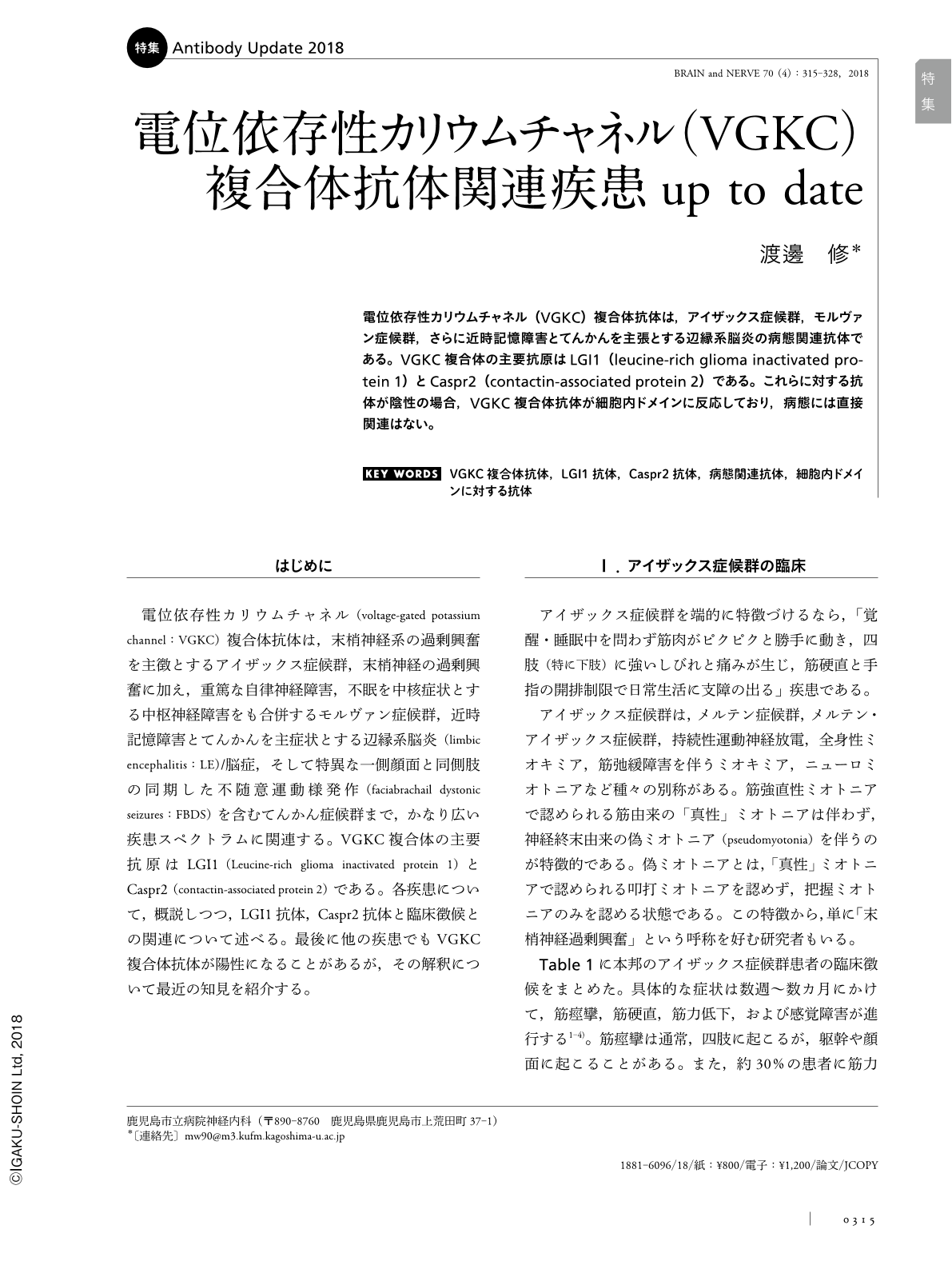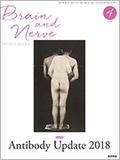Japanese
English
- 有料閲覧
- Abstract 文献概要
- 1ページ目 Look Inside
- 参考文献 Reference
電位依存性カリウムチャネル(VGKC)複合体抗体は,アイザックス症候群,モルヴァン症候群,さらに近時記憶障害とてんかんを主張とする辺縁系脳炎の病態関連抗体である。VGKC複合体の主要抗原はLGI1(leucine-rich glioma inactivated protein 1)とCaspr2(contactin-associated protein 2)である。これらに対する抗体が陰性の場合,VGKC複合体抗体が細胞内ドメインに反応しており,病態には直接関連はない。
Abstract
Voltage-gated potassium channel (VGKC) complex auto-antibodies were initially identified in Isaacs' syndrome (IS), which is characterized by muscle cramps and neuromyotonia. These antibodies were subsequently identified in patients with Morvan's syndrome (MoS), which includes IS in conjunction with psychosis, insomnia, and dysautonomia. The antibodies have also been detected in a patient with limbic encephalopathy (LE) presenting with prominent amnesia and frequent seizures. Typical cases of LE have adult-onset, with frequent, brief dystonic seizures that predominantly affect the arms and ipsilateral face, and has recently been termed faciobrachial dystonic seizures. Autoantibodies against the extracellular domains of VGKC complex proteins, leucine-rich glioma-inactivated 1 (LGI1), and contactin-associated protein-2 (Caspr2), occur in patients with IS, MoS, and LE. However, routine testing has detected VGKC complex antibodies without LGI1 or Caspr2 reactivities (double-negative) in patients with other diseases, such as Creutzfeldt-Jakob disease and amyotrophic lateral sclerosis. Furthermore, double-negative VGKC complex antibodies are often directed against cytosolic epitopes of Kv1 subunits. Therefore, these antibodies should no longer be classified as neuronal-surface antibodies and lacking pathogenic potential. Novel information has been generated regarding autoantibody disruption of the physiological functions of target proteins. LGI1 antibodies neutralize the interaction between LGI1 and ADAM22, thereby reducing the synaptic AMPA receptors. It may be that the main action is on inhibitory neurons, explaining why the loss of AMPA receptors causes amnesia, neuronal excitability and seizures.

Copyright © 2018, Igaku-Shoin Ltd. All rights reserved.


